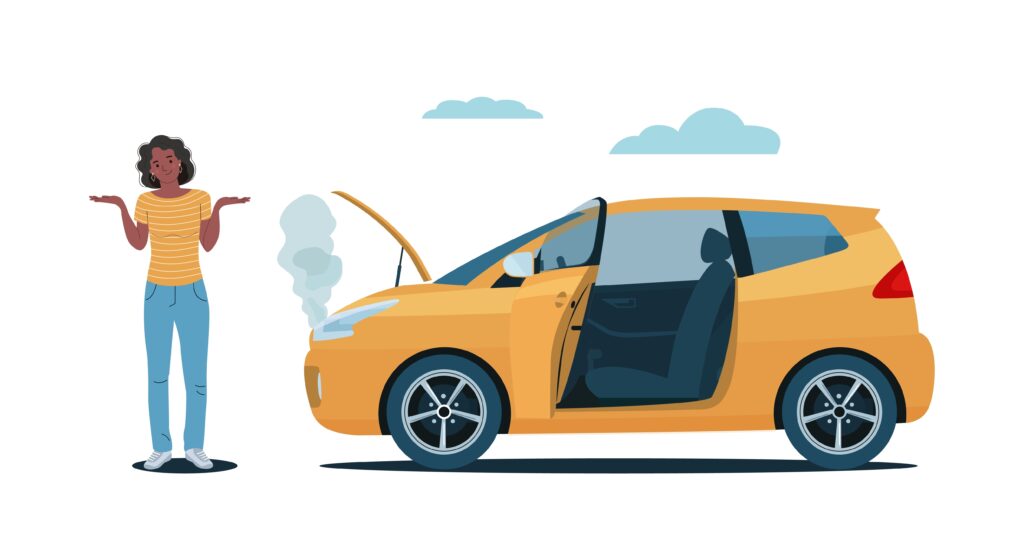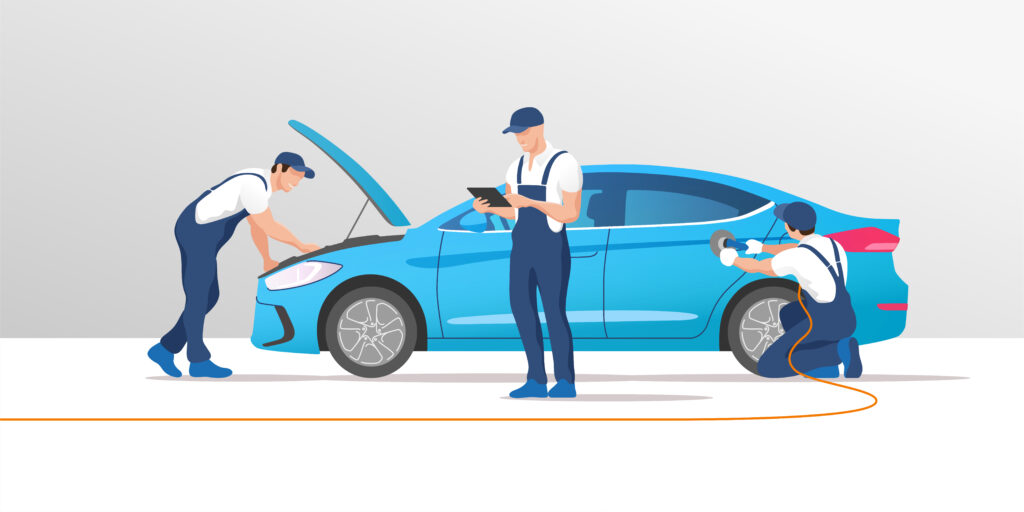For decades, California’s Lemon Law has been one of the strongest consumer protections in the country, ensuring that car buyers and lessees don’t get stuck with defective vehicles. If your car had ongoing mechanical issues that the manufacturer couldn’t fix, the law guaranteed your right to a refund or replacement vehicle—at no cost to you.
But that protection is now in jeopardy.
In September 2024, Governor Gavin Newsom signed Assembly Bill 1755 (AB 1755), a new law that was supposed to streamline the Lemon Law process. Instead, it has been met with outrage from consumer advocates and attorneys, who argue it does the exact opposite—stripping away key protections and making it harder for consumers to win claims.
Here’s what’s at stake:
A shorter window to file a Lemon Law claim—meaning you could lose your rights faster than ever.
More legal hurdles for proving your car qualifies as a lemon.
No more Lemon Law protection for most used cars—even if they’re still under warranty.
Automakers get to choose which version of the law they follow—but consumers have no choice.
Now, lawmakers are scrambling to fix the backlash before the law fully takes effect on April 1, 2025. But the damage may already be done.
If you own a defective car in California, these new rules could impact your ability to get compensated. This guide will break down what has changed, why it matters, and—most importantly—what you can do to protect yourself.
What Is the California Lemon Law?
The California Lemon Law, officially known as the Song-Beverly Consumer Warranty Act, is one of the strongest consumer protection laws in the country. It ensures that buyers and lessees of new vehicles are not stuck with defective cars, trucks, SUVs, motorcycles, or other qualifying vehicles that fail to perform as promised under the manufacturer’s warranty.
If your vehicle has persistent mechanical issues that cannot be repaired after a reasonable number of attempts, the manufacturer is legally required to either replace the vehicle or refund your money. This law applies to both purchased and leased vehicles, offering consumers a crucial safeguard against faulty automobiles.

Who Is Protected Under the California Lemon Law?
- New Car Owners – If you bought a new car under a manufacturer’s warranty and it has recurring defects that impact its safety, use, or value, you may qualify.
- Leased Vehicle Owners – If you leased a vehicle and it has repeated mechanical issues, you are also covered.
- Some Used Car Owners – The Lemon Law previously covered used cars if they were still under the original manufacturer’s warranty. However, with the new changes to the law, this protection is being stripped away for most used car buyers.
- Business Vehicles – Certain business vehicles under 10,000 pounds gross weight may also qualify if they are owned by a business with no more than five vehicles in total.
How Does a Car Qualify as a Lemon in California?
For a vehicle to be officially classified as a lemon, it must meet the following criteria:
- The car has a substantial defect – The problem must be serious enough to affect the vehicle’s safety, use, or market value. Minor inconveniences, such as a broken radio, typically do not qualify.
- The defect occurs while under the manufacturer’s warranty – The manufacturer must have an opportunity to fix the issue while the car is still covered under warranty.
- The manufacturer has made multiple repair attempts – In most cases, the manufacturer is given a reasonable number of attempts to repair the vehicle:
- At least two attempts if the defect could cause death or serious injury.
- At least four attempts for other types of substantial defects.
- Or, if the car has been in the repair shop for 30 or more cumulative days.
- The defect was not caused by owner misuse or neglect – If the issue is due to an accident, improper maintenance, or aftermarket modifications, it may not qualify.
What Happens If Your Car is a Lemon?
If your vehicle meets the Lemon Law criteria, the manufacturer must provide you with one of the following remedies:
- A Full Refund (Buyback) – The manufacturer reimburses you for the car’s full purchase price, including taxes, registration fees, and loan payments.
- A Replacement Vehicle – You can receive a new vehicle of the same make and model with comparable features.
- Coverage of Attorney’s Fees – California’s Lemon Law requires the manufacturer to cover all your legal fees if you win your claim, meaning you can hire an attorney at no cost to you.
Why the New Changes Are a Problem for Consumers
For years, California’s Lemon Law has been a model for consumer protection, helping thousands of drivers get compensation for defective vehicles. However, the recent changes in 2025 severely limit consumer rights by:
- Shortening the deadline to file a Lemon Law claim.
- Increasing the burden of proof on consumers.
- Eliminating Lemon Law protections for most used car buyers.
These changes shift power back to the auto manufacturers, making it harder for consumers to hold them accountable for defective vehicles.

What Has Changed with the California Lemon Law?
In September 2024, Governor Gavin Newsom signed Assembly Bill 1755 (AB 1755), intending to streamline the Lemon Law process. However, instead of improving the process, the law introduced new hurdles that favor automakers over consumers. Critics now refer to it as the auto industry protection statute rather than a consumer protection law.
Key Changes in the New Lemon Law:
1. Shortened Claim Period
- Under the new law, consumers must file a Lemon Law claim within one year after their warranty expires.
- Many car warranties expire based on mileage, not just time.
- In Southern California, where drivers average over 12,000 miles per year, a high-mileage driver could have less than two years to file a claim.
2. Increased Burden on Car Owners
- Car owners now have stricter documentation requirements to prove their vehicle qualifies as a lemon.
- More legal loopholes make it easier for manufacturers to deny claims based on minor technicalities.
3. Used Vehicles Are No Longer Covered
- Previously, used vehicles with the remaining balance of a manufacturer’s warranty were protected under the Lemon Law.
- The new law removes protections for second-hand buyers, even if the car is still under the original factory warranty.
- This change was influenced by auto industry lobbyists and a recent California Supreme Court decision that redefined which vehicles qualify.
Why Lawmakers Are Scrambling to Fix the Bill
From the start, consumer advocacy groups and legal experts criticized AB 1755 as a one-sided law benefiting automakers.
Consider this:
- Four automakers—General Motors (GM), Ford, Nissan, and Stellantis—account for over 70% of all Lemon Law claims in California.
- GM alone was responsible for nearly one-third of these cases between 2018 and 2021.
These automakers helped shape the new law in private meetings, while other major brands like Tesla and Toyota were left out. Many lawmakers admitted that they were pressured to pass the bill quickly without fully understanding its consequences.
Proposed Amendments (Senate Bill 26 – SB 26)
To address backlash, Governor Newsom proposed Senate Bill 26 (SB 26), allowing automakers to opt out of the new law and continue following the old system.
This means:
- Some car brands will operate under the old Lemon Law rules.
- Others will adhere to the new, stricter regulations.
For the first time in history, your Lemon Law rights will depend on which brand of car you own.
How These Changes Affect You as a Car Owner
Even if lawmakers pass SB 26, many of AB 1755’s restrictions will still apply. Here’s what this means for you:
1. File Your Lemon Law Claim ASAP
- The deadline for filing a claim is now shorter, so act fast if your car has persistent issues.
- If you wait too long, you could lose your right to compensation.
2. Understand Your Warranty
- Be extra careful when buying a used vehicle—the new Lemon Law does NOT protect second-hand buyers.
- Only manufacturer-certified pre-owned (CPO) vehicles with a new CPO warranty may still qualify.
3. Don’t Let Automakers Mislead You
- Automakers want you to believe you must formally notify them in writing and wait 30 days before suing—this is NOT TRUE.
- Contact an experienced Lemon Law attorney before taking action.
4. Your Rights Depend on Your Car Brand
- Some manufacturers will still follow the old Lemon Law rules.
- Others will stick to the new, stricter regulations—making claims harder.
Before you buy a car, check which version of the Lemon Law applies to that brand.

Why Hiring a California Lemon Law Attorney is More Important Than Ever
Given these major changes, hiring an experienced Lemon Law attorney is now more important than ever.
- Automakers have teams of lawyers working to minimize your payout.
- The new law is complex, confusing, and filled with loopholes.
- If you don’t have an attorney, you could receive less compensation than you deserve—or nothing at all.
The good news? California’s Lemon Law requires manufacturers to pay your legal fees if you win—so you can hire Win Lemon Law at no cost to you.
Have Questions About the New Lemon Law? We Can Help.
With the new changes to California’s Lemon Law set to take effect, consumers face a more challenging path to securing refunds or replacements for defective vehicles. The shortened claim period, stricter documentation requirements, and elimination of protections for most used car buyers all work in favor of automakers while making it harder for car owners to seek justice. While lawmakers are considering amendments, the reality is that these changes will significantly limit consumer rights and make it more difficult to hold manufacturers accountable.
If you believe your vehicle qualifies as a lemon, now is the time to act. The sooner you begin the process, the better your chances of securing the compensation you deserve before these new legal hurdles take full effect. The process can be complex and confusing, especially with the recent legal changes, but having the right legal team on your side can make all the difference.
At Win Lemon Law, we are committed to fighting for consumer rights and ensuring that auto manufacturers do not take advantage of these legislative changes. Our team has successfully handled hundreds of Lemon Law cases in California, helping car owners receive the refunds or replacements they are entitled to under the law. Best of all, manufacturers are required to cover your legal fees if you win your case—so hiring us costs you nothing.
If you have concerns about your vehicle or want to know how the new Lemon Law changes affect your rights, contact us today for a free consultation. Let us help you navigate this evolving legal landscape and fight for the compensation you deserve

